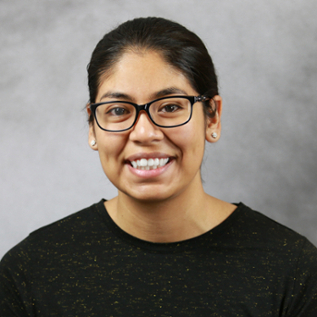2020 Inductees
2020 Scholars

Jamie Aaron Golden Hamilton is a candidate for the Ph.D. in cancer biology at Emory University. His research focuses on determining how chronic inflammation in the context of childhood obesity alters hematopoiesis, immunity, and leukemogenesis. He has been recognized as a USDA 1890 scholar, a FGLSAMP scholar, and honored as a part of the National Cancer Institute’s GMAP program. Mr. Hamilton received his Bachelor of Science in biology from the illustrious Florida A&M University, where he first conducted research and published in the fields of analytical chemistry and environmental toxicology. Jamie serves as a leader at Emory University in his capacity as the cancer biology representative on the graduate biological division’s student advisory council. Upon completion of his Ph.D., Jamie aspires to build a research lab to study hematological disorders and develop a tissue bank that will increase the number of underrepresented minority samples in research studies.

Frederica Lamar is a candidate for the Ph.D. in environmental health sciences at Emory University. Her research focuses on childhood exposures to chicken fecal contamination along the chicken value chain in Maputo, Mozambique that put children at risk for acquiring enteropathogen infections. Frederica has been recognized as a Gates Millennium Scholar; Center for Global Safe Water, Sanitation, and Hygiene Fellow; Delta Omega Honorary Society in Public Health member; and she represents doctoral students in Emory University’s Laney Graduate School as University Relations Officer. She received a Bachelor of Science in environmental engineering from Johns Hopkins University, where she was a recipient of the National Society of Black Engineers (Baltimore Metropolitan Area Chapter) William Thomas Batten Jr. Leadership Award. Additionally, she earned a Master of Science in public health with a concentration in global environmental health sciences from the Tulane University School of Public Health and Tropical Medicine, where she received the William R. Hartley, ScD Award for Excellence in Environmental Health Research. Frederica has a passion for mentoring younger generations in her community and believes in bridging the gap between the transition from high school to college. She manages Securing Degrees Debt Free, LLC, where she guides high school students through the college and scholarship application processes by hosting interactive seminars and private sessions throughout the greater Atlanta area. Ultimately, Frederica aspires to work at the intersection of research and food safety, with a passion for mitigating the occurrences of waterborne and foodborne illnesses in resource-limited populations.

Tatenda Mangurenje is a candidate for the Ph.D. in anthropology with a concentration in medical anthropology at Emory University. She is also an accelerated Master of Science in nursing student with a family nurse practitioner specialty. Tatenda’s research focuses on diversity and mental health in policing. Tatenda has been recognized by the National Science Foundation and has received a Graduate Research Fellowship. She holds a Bachelor of Science in biological anthropology, as well as a Bachelor of Science in psychology, from the University of Arizona, where she was a recipient of the Magellan Scholarship. Tatenda promotes diversity in both her research and teaching. As well, she works with the Life University Center for Compassion, Integrity and Secular Ethics’ Chillon Project, providing hands-on tutoring, research methods and application mentorship to incarcerated women who are enrolled in the University’s Bachelor of Science in psychology degree program. Ultimately, Tatenda aspires to work at the intersection of advanced practice nursing and medical anthropology, with a passion for improving the lives of medically underserved communities and promoting diversity in higher education.

Sandra Y. Mendiola is a PhD candidate in Emory University’s Population Biology, Ecology, and Evolution graduate program. She is broadly interested in exploring how we can leverage insect-microbe symbioses for the control of vector-borne pathogens in agriculture. Her review “An integrative approach to symbiont-mediated vector control for agricultural pathogens” was recently accepted for publication in Current Opinion in Insect Science and highlights the importance of integrating population-level modeling into the design and deployment of novel symbiont-based control methods. Her current work focuses on finding a way to control the squash bug, a major pest of commercial squash production in the US, through manipulation of its symbiotic bacteria. Sandra is a recipient of the National Science Foundation’s Graduate Research Fellowship and a fellow of Emory’s Initiative for Maximizing Student Development (IMSD). Sandra received her Bachelor of Science from Yale University, where she majored in ecology and evolutionary biology and was a part of the Mellon Mays Undergraduate Fellowship (MMUF). Throughout her academic journey, she has been a leader of organizations dedicated to promoting the advancement of marginalized students in academia. She is an ambassador for Emory’s Diversifying Graduate Education (EDGE) initiative, a founding member of the Diversity, Equity, and Inclusion Committee of her graduate program, and a mentor for first-generation undergraduates at Emory as part of their 1915 Scholars program. Sandra hopes to one day be a professor and lead her own lab where she can continue to serve as a mentor and advocate for underrepresented students.

Raphiel J. Murden recently earned his PhD in Biostatistics from Emory University. His research focused on data integration methods with applications to neuroimaging statistics. Raphiel’s passion for learning and teaching quantitative sciences, especially with groups that are traditionally underrepresented in those fields has been a driving force behind much of his career. Currently, he is an Assistant Professor in the Biostatistics and Bioinformatics department at Rollins School of Public Health. His research lab is currently building a probabilistic model to conduct data integration analysis and apply it to data from older patients who are either at-risk for or diagnosed with Alzheimer's disease. They will soon transition to focus on functional data analysis with applications to health disparities. This work focuses on assessing psychological and social factors associated with elevated risk for cardiovascular disease in Black women. During his matriculation at Emory, Raphiel served as co-founder and vice president of the Emory LTBGQ Graduate Coalition and as the student-faculty liaison on the Biostatistics student council. He currently serves as a member of the Biostatistical Collaboration core, where he provides statistical expertise to early-career and student investigators for data analysis and study design. Raphiel earned a Bachelor of Arts degree in mathematics with a music minor from Morehouse College and a Master of Arts in Statistics from Washington University in St. Louis.